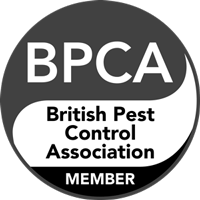Table of Contents
Flies of all types can be a nuisance to homeowners, especially if the odd fly has turned into a full-blown infestation. If your home has become infested with flies, you should follow our guide thoroughly to learn how to identify them, find the source of the problem, and stop them from reproducing.
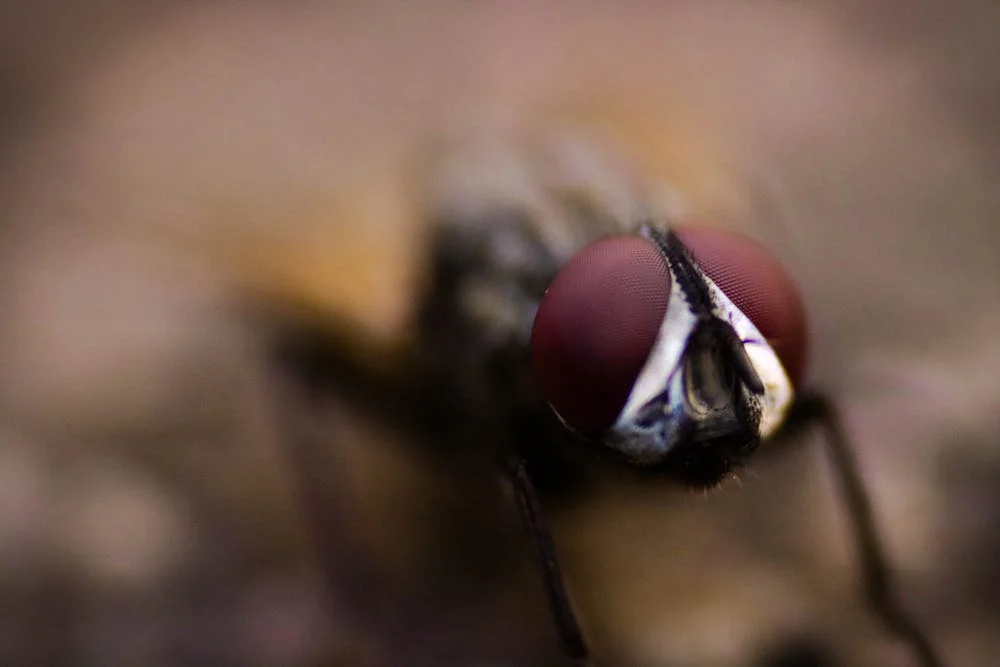
This guide is written by the British Pest Control Association certified team members of Integrum Services. We’re experts at fly control and have solved thousands of fly infestations in London and the south-east of England during our time.
Call Integrum on 0204 566 5522 to guarantee the job is done correctly, or continue reading if you’d like to attempt to get rid of flies on your own.
Fly species
Although there are more flies than we will mention in this species section, these are the most common flies that you will find across your home:
House fly
The house fly, different from the horse fly, is the most common species that may have infested your home. House flies carry diseases that spread to both humans and pets, as they land and walk over food containing it.
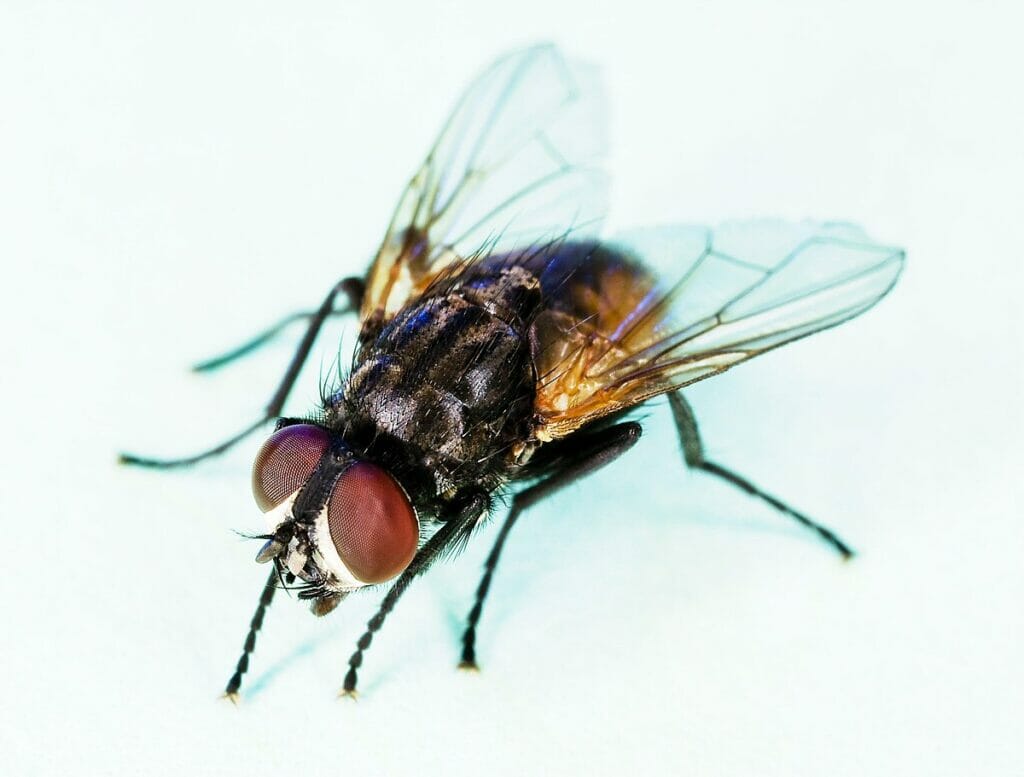
- Size: 6 to 7 mm
- Colour: Dark grey
- Latin: Musca Domestica
Cluster fly
Cluster flies, otherwise known as grass flies, got their name from the clustering appearance in adults when in homes and properties. It takes approximately 10-12 months for a cluster fly egg to transform into an adult fly.
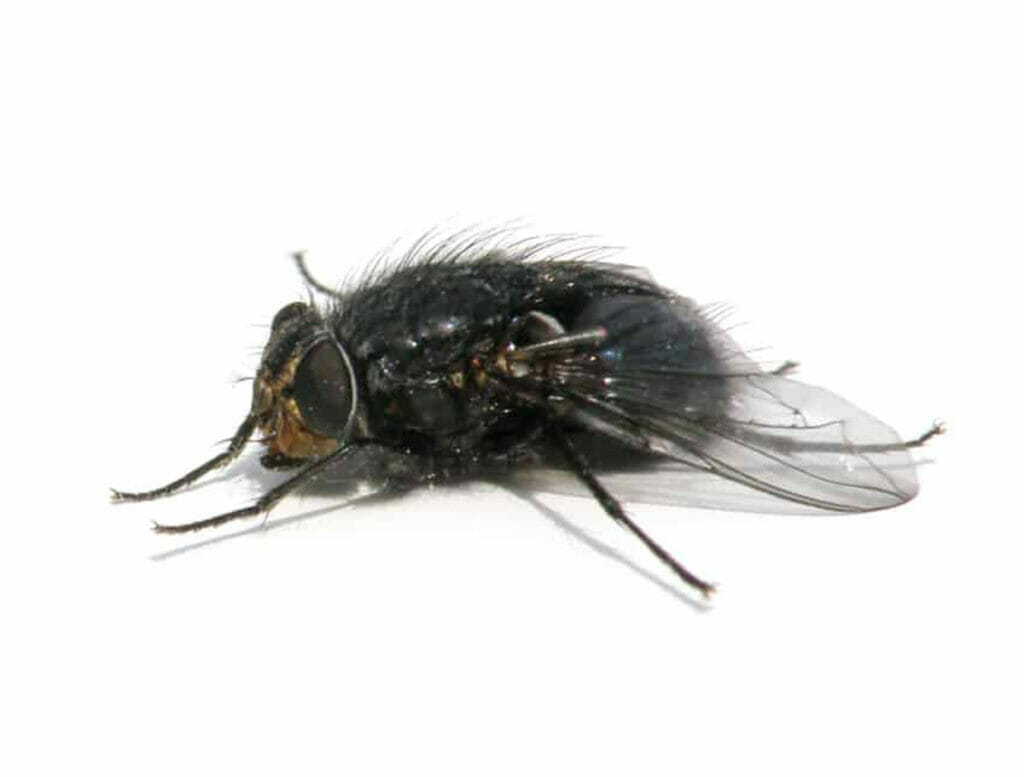
- Size: 7 to 10 mm
- Colour: Darker than a house fly
- Latin: Pollenia Rudis
Bluebottle fly
Bluebottle flies typically cause infestations in your home after they fly through an ingress point. Once inside, they will only stay if there is a regular food supply for them. Like other flys, they transmit diseases, so it’s important to identify which fly infestation you have before proceeding.
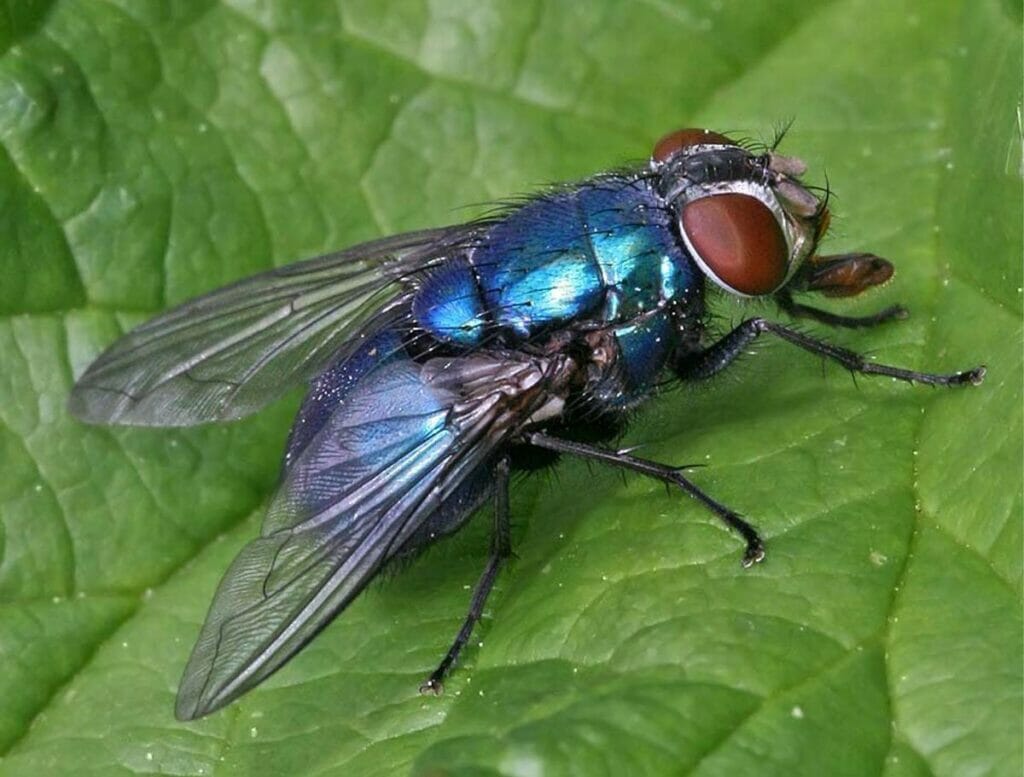
- Size: 10 to 14 mm
- Colour: Blue
- Latin: Calliphora vomitoria
Fruit fly
Next, we have fruit flies. As the name suggests, they are usually attracted to decaying, rotting fruit or any fermented source (beer and wine). This is typically why we come across fruit flys in bars and restaurants.
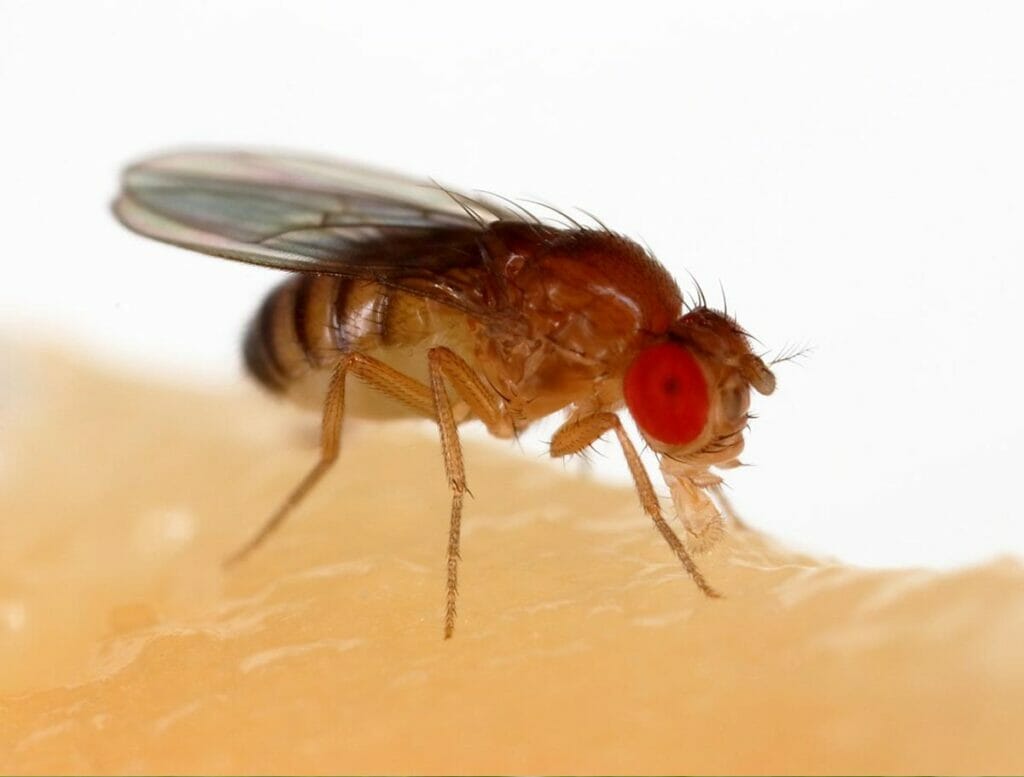
- Size: 2 to 2.5 mm
- Colour: Yellow-brown
- Latin: Drosophila melanogaster
Although the flies mentioned above are the most likely to cause an infestation at your home, other flies exist in the UK. If you’d like a more detailed guide on the different types of fly species, we recommend reading the linked article.
Are flies harmful?
All of the types of flies mentioned throughout this article are considered to be “pests.” They are all nuisance pests that can potentially harm humans and pets with the diseases they carry. So, yes, flies are harmful; take the house fly, for example. They often feed on and reproduce in bins outside and inside your home, and when they land on your food, they contaminate it by defecating and regurgitating onto it.
Signs of a fly infestation
If you’ve noticed a few flies buzzing around your home, we advise you not to worry. Buy some fly spray and get to work; you’ll get rid of one or two as soon as you use the DIY insecticide. On the other hand, it’s important to act as soon as you notice a potential fly issue. If you’re unsure if you have an infestation, you should look out for the following:
- Maggots: This is the first sign of a fly infestation as you’ll be able to find breeding areas flies are using in your home. Look out for worm-like creatures in environments such as compost, bins and other decaying material.
- Large population: Depending on the fly you’ve identified, you’ll notice them at different locations. However, with all fly infestations, you’ll spot large amounts of flies buzzing around an area. You’ll also notice a large number of dead flies on your property.
If you’ve spotted any of the signs above, your home is likely infested. We recommend contacting us rather than using DIY solutions as we’re trained in the profession of fly control and have access to higher grade insecticides than the public.
How to get rid of flies outside
Although it’s fairly natural to have some flies outside your property, it becomes a problem when the population grows. If that’s the case, follow our tips on how to get rid of flies outside your home.
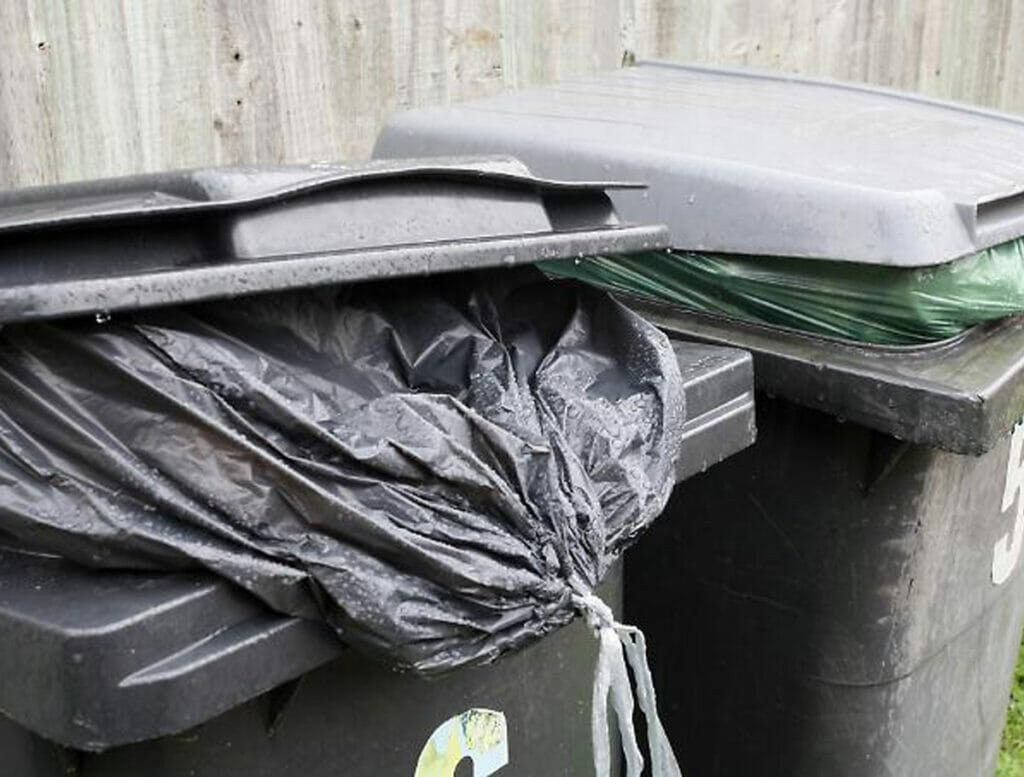
- Step 1: The first step to getting rid of flies outside is to clean your garden extremely well. Flies are attracted to dirt, waste and rubbish. So clean up your garden and watch your fly population reduce.
- Step 2: Once you’ve cleaned the area, we recommend using a DIY fly insecticide to spray all places where flys have been gathering and laying eggs. It’s important to know where the breeding ground is to ensure you get all life forms and eggs.
- Step 3: There are multiple options available to control the fly population once your property has been cleaned and sprayed. We recommend an outside electric fly killer unit. However, fly traps and particular garden plants such as Basil, Lavender and Rosemary can be effective.
- Step 4: Our final tip to get rid of flies outside would be to continue spraying the identified breeding grounds with insecticides for the next month. This will vary depending on the species, but the average lifespan for a house fly outside is around one month.
How to get rid of flies inside
It’s more than likely that the reason your reading this article is to get rid of flies inside your home. To do this, we recommend following these steps:
- Step 1: Eliminate the source. The first step would be to find and identify the source of your fly infestation. It can be difficult to locate, but you should see maggots where adult flys have been laying eggs. Typical locations include your rubbish bin. Your bin should be disposed of and cleaned regularly and made inaccessible for flys to gain access. Step 1 is the most important, as once the source has been eliminated, flies will likely want to move on.
- Step 2: Seal all ingress points. While you have your fly problem, we recommend keeping doors and windows closed as often as possible. This stops anymore flies from coming into your home and allows you to deal with the current problem.
- Step 3: Clean up your home. Like stopping flies outside your home, you should make sure your home is clean, and no waste or rotting sources are left for flies to feed on. If you own pets such as cats, make sure their litter box is emptied every day, as faeces are the perfect breeding ground for flies.
- Step 4: Use fly proofing techniques. Once all flies have been eliminated from your home, you should locate how they got in and proof the area. You may use fly screens and fly doors to prevent them from gaining access.
What attracts flies to your home?
The odd fly may come into your home now and then. To become a full-blown infestation, there needs to be something that attracts them to stay. The most common reasons why flies stay in your home include:
- The weather outside is cold, and they prefer the heat of your home.
- You leave lights on during the night; flies will find a way into your home as they are attracted to light.
- You don’t empty and clean your bin regularly. Rubbish is a perfect breeding ground for flies, and they are naturally attracted to it.
- Rotting food has been left out to decay. Flies will find this rotting food and use it to repopulate.
How Integrum gets rid of flies
Homemade, DIY techniques usually have limited impact in deterring flies from your property. Although the techniques we’ve mentioned throughout this article are helpful, they are not guaranteed as the approach for each fly species is different! We usually find that untrained individuals fail to get rid of all lifeforms of flies, meaning the infestation returns.
Our expert technicians can visit your home to identify which fly is causing you problems and locate the breeding site. Please don’t take a chance with DIY fly control, our services are available in London and all the south-east of England to help you become fly free.




